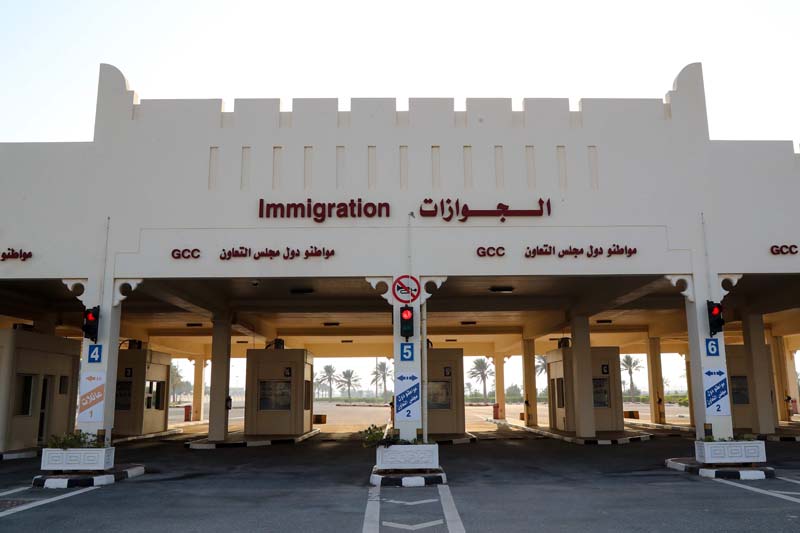
DOHA: Families were divided, students expelled, businesses broken and religious pilgrimages denied when a quartet of countries broke ties with Qatar in June 2017. A new era of possibility beckons after the Saudi-led boycotting countries re-established relations in a dramatic rapprochement on Tuesday, although some in Qatar are wary of the promised new dawn.
"Everyone I talk to is quite happy; I think people have forgotten how it felt" at the start of the crisis, said Fahad, a Qatari oil and gas worker, of the process that Saudi Arabia has pushed with US encouragement as the Trump administration enters its final days. "This is good news. People are not so bogged down about the details politically. They're just happy they can see their families and be able to travel," he told AFP.
But analysts are dubious that the row, which centered on allegations over Qatar's relations with Iran and Islamist militants, is truly resolved after the hasty reconciliation which did not address the underlying resentments. Families with mixed parentage were particularly hard hit during the years of isolation, with Qatari spouses of Emiratis and Bahrainis forced to leave and return to Doha by the blockade which caused rows within some mixed families.
Qatar has claimed in legal proceedings that over 3,600 marriages between Qataris and Emiratis were affected by the measures which also saw Saudi and its allies - the UAE, Bahrain and Egypt - shut borders and airspace to Qatari people and trade. Rashid, a Qatari with a mother from the Emirates and a local father, said in the days after the measures were imposed "we were mad at each other so much that we stopped talking for a while". "That's patriotism," he said. "The same thing happened with my cousins in Saudi Arabia."
One former Qatar Airways employee, who was in Doha at the start of the crisis, said many marriages failed because of the restrictions. "There's loads of people who lost husbands and wives over this stupid blockade. Lots of Qataris married to Saudis and Emiratis," he said. While families could, at significant expense, be reunited outside affected countries, Muslims in Qatar struggled to undertake the hajj and umrah pilgrimages to Makkah in Saudi Arabia, Islam's holiest city.
Qatar and Saudi Arabia blamed each other for the hurdles, but only a handful of worshippers made the journey in the crisis years. "I have not performed it during the last period because the borders were closed and they weren't even allowed to deal with the Qatari currency. It was very difficult and exhausting," Qatari student Abdul-Rahman Rashid Al-Kuwari told AFP. "After the agreement and the opening of the borders there is no fear and things are good, especially with Saudi Arabia, and we do not need anything else. We will go to visit the holy places, especially the hajj," the student said after evening prayers at a Doha mosque.
The economic hit of the crisis, coinciding with low oil prices and the coronavirus downturn, was felt across the region. Well-heeled Saudis were unable to visit Doha for holidays and long weekends while expats living in Qatar were unable to visit popular destinations like Dubai without tedious detours via Kuwait or Oman. "No beers in Dubai for three-and-a-half years," said one British expat working in Doha. "Travesty."
But Fahad, the Qatari gas worker, warned his countrymen would be more cautious about travelling to the UAE. "Expats will definitely travel to Dubai, when they get the chance. But a lot of locals won't be as keen to go to the Emirates because they think it's unsafe," he said. "It will take more time. But definitely people will be going to Saudi, it's not as scary."
A litmus test will be how many fans from the former boycott countries travel to the FIFA Club World Cup in Doha next month if coronavirus restrictions permit. Football-mad Saudis attended fixtures in Qatar in significant numbers prior to the embargo, and Egypt's leading club Al-Ahly will play next month, potentially drawing thousands of travelling supporters. "So it'll help us avoid empty stadiums" in 2022, said Fahad, referring to the World Cup which will be played in Qatar next year. - AFP
.jpg)
